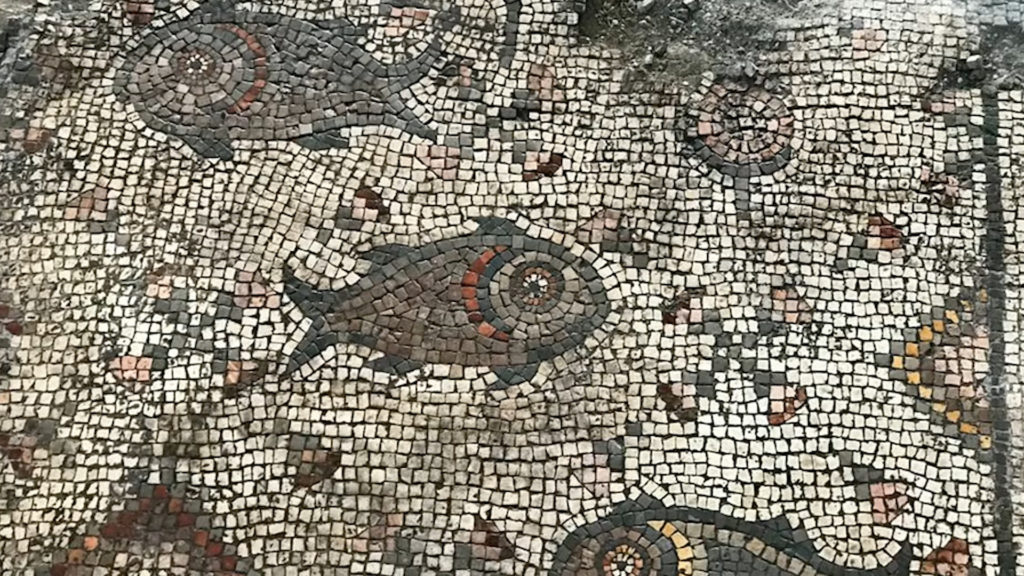
Spiritual Sunday
I went looking for fish poems to accompany today’s Gospel reading and as a result found myself rethinking a Mary Oliver poem I thought I knew well. I have long argued that Oliver’s nature poems are often simultaneously religious poems, and “The Fish” bears me out.
The Gospel reading involves Jesus’s initial encounter with Peter and Andrew (Matthew 4:18-22):
As he walked by the Sea of Galilee, he saw two brothers, Simon, who is called Peter, and Andrew his brother, casting a net into the sea—for they were fishermen. And he said to them, “Follow me, and I will make you fish for people.” Immediately they left their nets and followed him. As he went from there, he saw two other brothers, James son of Zebedee and his brother John, in the boat with their father Zebedee, mending their nets, and he called them. Immediately they left the boat and their father, and followed him.
Oliver’s poem involves suffering, death, communion, resurrection, and grace—which is to say, Christianity’s central drama:
The first fish
I ever caught
would not lie down
quiet in the pail
but flailed and sucked
at the burning
amazement of the air
and died
in the slow pouring off
of rainbows. Later
I opened his body and separated
the flesh from the bones
and ate him. Now the sea
is in me: I am the fish, the fish
glitters in me; we are
risen, tangled together, certain to fall
back to the sea. Out of pain,
and pain, and more pain
we feed this feverish plot, we are nourished
by the mystery.
I’ve mentioned in the past that Oliver, like George Herbert and Flannery O’Connor, doesn’t believe in cheap grace. The poem wrestles with the agony of mortality as the fish dies a painful death. I think that the fish dying “at the burning amazement of the air” is like God, become human, being amazed at what humans suffer. In what is an allusion to Elizabeth Bishop’s famous poem “The Fish,” the rainbow imagery points to how the dying is simultaneously beautiful (“the slow pouring off of rainbows”) and ghastly (“flailed and sucked”).
As with the Eucharist, Oliver consumes the fish in a ceremonial way. In doing so, she feels filled, not only by the physical fish, but by the mysterious cycle of death and resurrection. “[W]e are/ risen, tangled together, certain to fall/ back to the sea.” The fish, like the Holy Spirit, “glitters in me.”
Oliver is reminding us of Christ’s promise in this veil of tears. No matter the “pain, and pain, and more pain” that we suffer, we feed and are nourished by “this feverish plot,” this “mystery.” In the end, when we fall back to the sea, it is as though we are folded once again in God’s loving embrace.
Evidence that Oliver regards returning to the sea as spiritual communion is clear from another fish poem, this one entitled “The Sea.” In it, she merges her religious beliefs and her understanding of evolution to celebrate the final coming together. It’s another version of Wordsworth’s assertion that “trailing clouds of glory do we come/ From God who is our home”:
Stroke by
stroke by stroke
my body remembers that life and cries for
the lost parts of itself—-
fins, gills
opening like flowers into
the flesh—-my legs
want to lock and become
one muscle, I swear I know
just what the blue-gray scales
shingling
the rest of me would
feel like!
paradise! Sprawled
in that motherlap,
in that dreamhouse
of salt and exercise,
what a spillage
of nostalgia pleads
from the very bones! How
they long to give up the long trek
inland, the brittle
beauty of understanding,
and dive,
and simply
become again a flaming body
of blind feeling
sleeking along
in the luminous roughage of the sea’s body,
vanished
like victory inside that
insucking genesis, that
roaring flamboyance, that
perfect
beginning and
conclusion of our own.
Further thought: Speaking of Wordsworth’s Intimations of Immortality, Oliver borrows an image directly from that poem, although in her case she’s drawing on our knowledge of evolution as well as Wordsworth’s spiritual beliefs. She talks about “the long trek/ inland” whereas Wordsworth writes,
Though inland far we be,
Our souls have sight of that immortal sea
Which brought us hither…